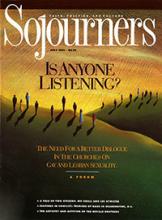Pragmatism, America's foremost theoretical distillation to date, has never quite enjoyed hegemonic status within the Western academic community. Even within the cloistered confines of North Atlantic learning centers -- specifically among the professional philosophic elite that people these institutions -- pragmatism's influence has been somewhat marginalized. Its discursive significance and critical methodology have been truncated by the more glamorous and relatively consolidated disciplines and personalities of the 20th century.
At the end of this decade, pragmatism, with its tacit themes of instrumentality, provocation, purposeful human agency, and power, celebrates its centennial year. Principally the offering of C.S. Pierce, pragmatism matured in the midst of transformation and addendum, from Pierce's rejection of Cartesian knowledge systems and the subsequent embrace of scientific experimentalism to William James' construction that truth is defined in direct context to its explicitly helpful functions, and to John Dewey's preoccupation with concepts of individuality, community, and the social application of critical intelligence.
In recent years pragmatism has gained in popularity. C.G. Prado's work on Richard Rorty and John Murphy's evaluation of the Pierce, Dewey, and James triumvirate have attracted more than a little attention. But one of the most ambitious treatments of pragmatism in recent years is undoubtedly The American Evasion of Philosophy by Cornel West. In this genealogy West attempts to give a full vision of pragmatism's roots, transformations, and integrative possibilities.
Read the Full Article
